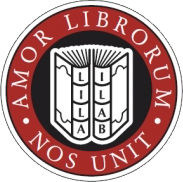Marking International Women's Day
Posted on 27th February 2019
To mark International Women’s Day on 8 March, we’re celebrating the lives and careers of women in the book trade.
Today, we’re in conversation with American-born Laura Massey of London’s Alembic Books. Together with Deborah Coltham she is launching her first paper catalogue entitled A Hunger of the Mind: Four Centuries of Women & Science.
FL How did you first get into bookselling?
LM I've been interested in books since I was small. My parents, especially my mom, are book lovers, and I grew up surrounded by books and reading every day. My dad was a studio potter, and he instilled in me an interest in fine crafts and beautiful, well-designed objects. I remember during childhood being really interested in what my books looked like and how they were made. We also occasionally saw rare books in the news or on Antiques Roadshow, but it never crossed my mind that I could make a career of them.
In 2004 I finished my Bachelor's degree in the History of Science. At the same time, I'd become a regular customer at A Cappella, a wonderful bookshop in Atlanta, Georgia, where rare books started to feel accessible to me for the first time. After a year of temping and frustrated job hunting I made the decision that if I was having such a hard time finding a mediocre job, I might as well try for my dream job instead. And when I asked myself what that was, the answer was rare books.
I started volunteering a few hours a week at A Cappella to get a feel for working in a bookshop, and some internet research led me to the History of the Book MA at the Institute of English Studies in London. I developed a long-term plan to obtain my MA and then take advantage of the (now discontinued) post-study visa to find a job in London, where the concentration of book shops was much higher than anywhere in the US. I completed the MA in 2009 and was lucky enough to become the cataloguer at Peter Harrington, then I started my own business in 2014. I've been in the trade for nine years now, and love it more every day.
FL What areas do you specialise in?
LM My stock covers all areas of science, natural history, technology, and medicine, but I'm particularly interested in biology, genetics and evolution; the connections between alchemy and chemistry; nuclear physics and the Manhattan Project; early computing; anatomical and scientific illustrations; and women's involvement in the sciences, especially as popular authors and specimen collectors. Firsts is London's premiere rare book event, and it’s a fabulous opportunity for me to display my stock alongside the world's greatest booksellers.
FL What’s been your favourite purchase or sale?
LM My favourite sale last year was a small book called Woman in Art: From Type to Personality by Helen Rosenau, published in 1944. I saw it at a fair but had never heard of it, and the dealer hadn't done any cataloguing. It piqued my interest because it seemed like a remarkably early date for a work of feminist art theory. Additionally, the cover was a striking modernist design, and it was bound with an unusual clear plastic spiral. In every way it seemed ahead of its time. My sense that this was an important work was rewarded when I discovered that the author was a leading architectural historian who had escaped the Nazis only a few years earlier. This was her only book of feminist criticism, and while it was nearly forgotten soon after publication, it's now being rediscovered by modern historians as an original and significant text in art history.
To top it off, the volume was designed by prominent typographer Anthony Froshaug (1920 – 1984), and was the first and only book published under his experimental Isomorph imprint. I sold it to the Metropolitan Museum of Art's Thomas J. Watson Memorial Library at the June fair last year, which was really exciting. This is my favourite part of bookselling, finding unusual items or little-known items, discovering their historical and social context, and using that information to find them the right homes.


